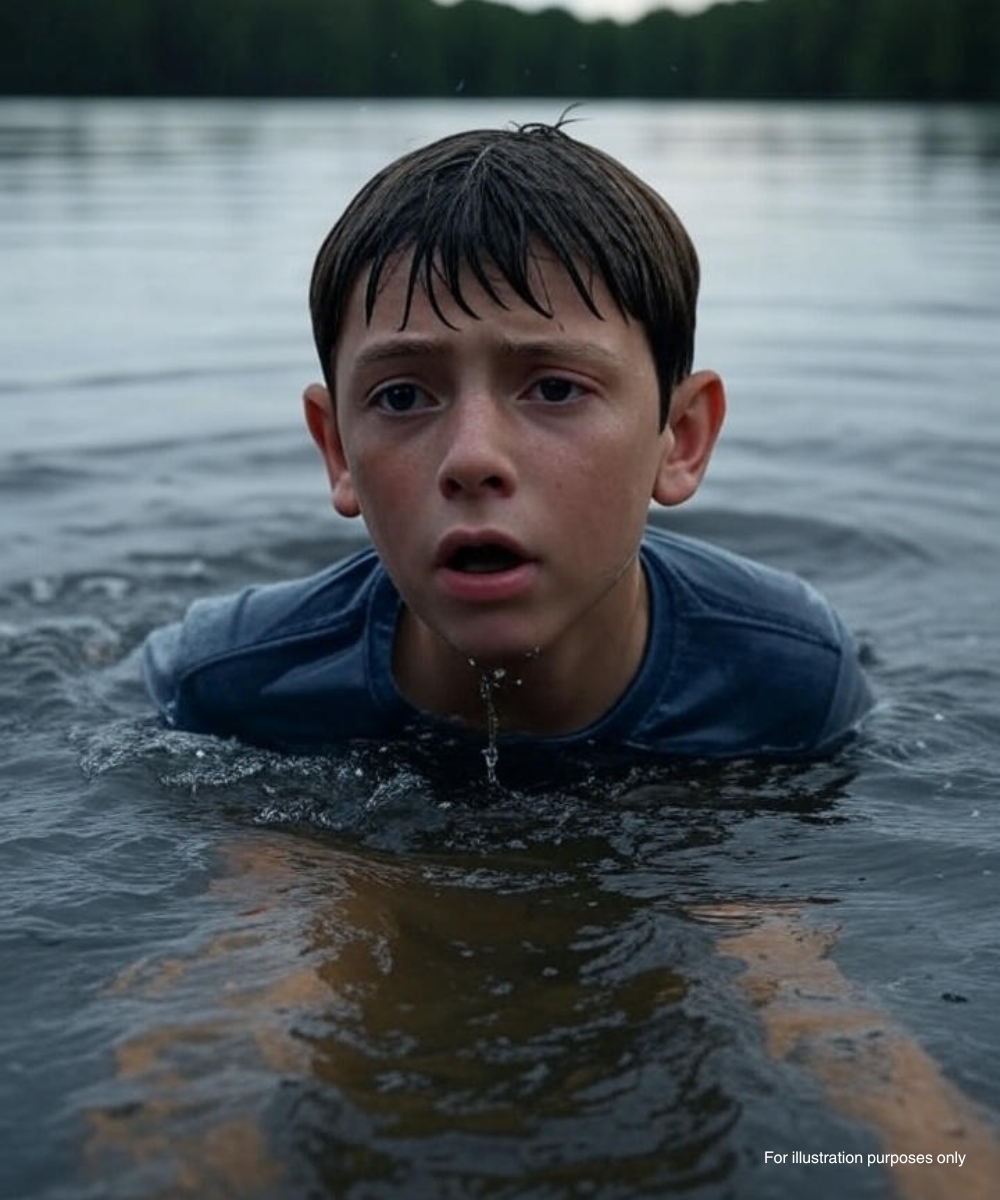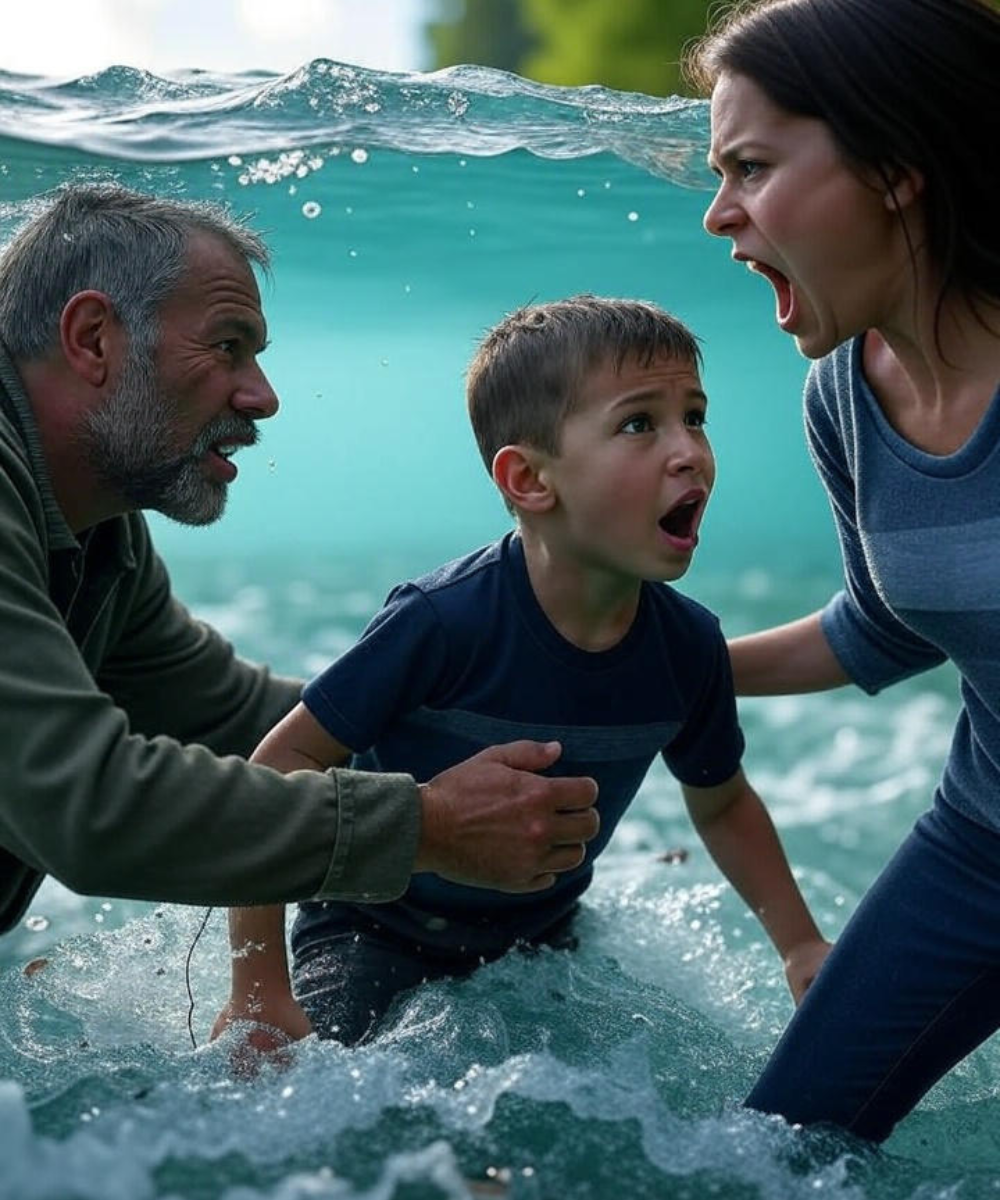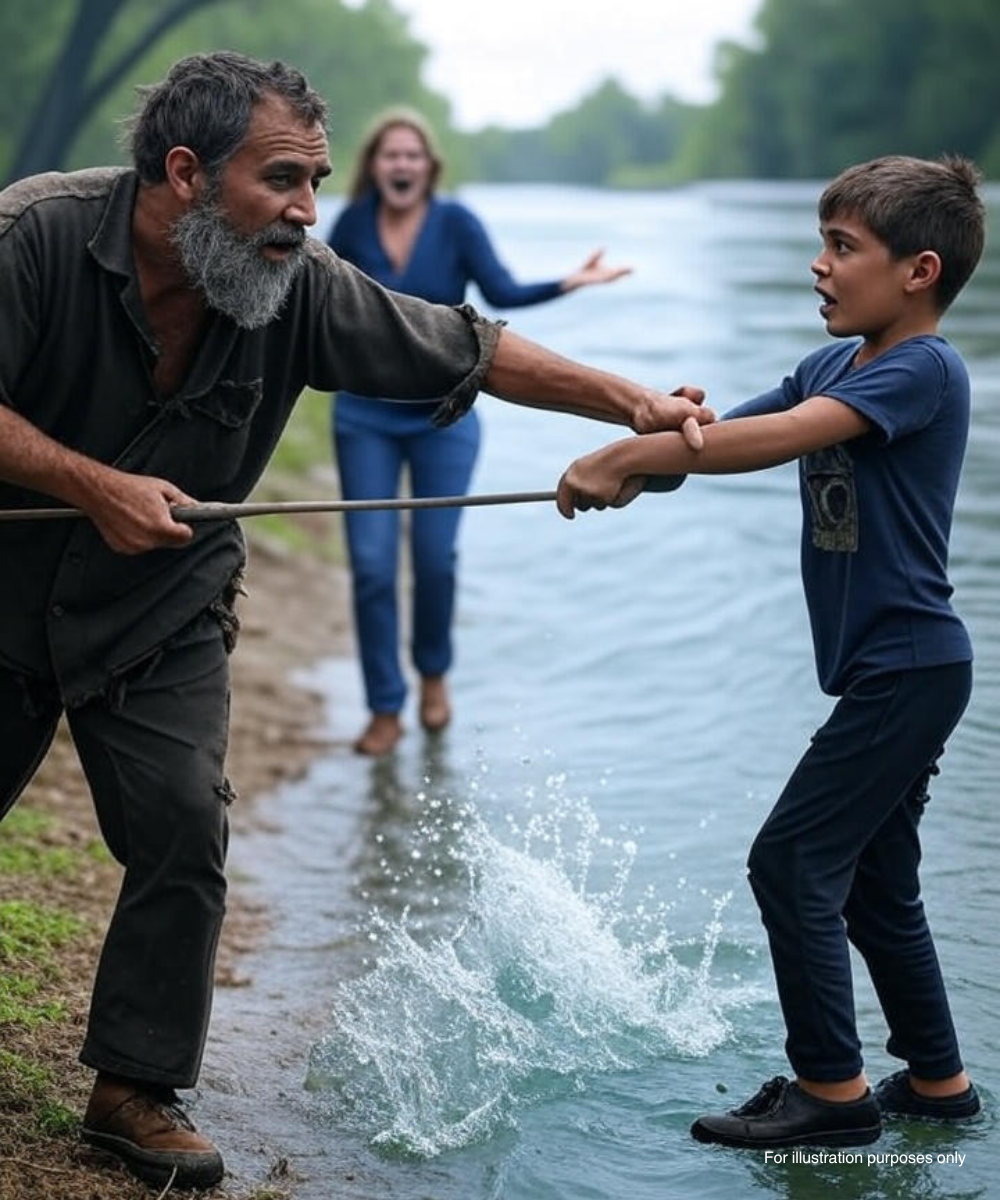The wind had teeth that day.
It gnawed through layers of wool and skin, whispering off the river in sharp gusts that stung the cheeks and numbed the fingers. Late November in the city meant gray skies, slush underfoot, and the kind of damp chill that made the world feel colorless.
Near a crumbling row of garages, a boy wandered. Five, maybe six, bundled in a coat too puffy for his small frame. His rubber boots splashed in puddles as he strayed closer to the river’s edge, just beyond the watchful eye of his mother — who stood with one hand on her hip and the other gripping her phone, laughing too loudly at something on the other end.
The river was no place for children that day. The current ran fast and deep, the water swollen from recent rain, its surface slick and restless.
And then it happened.
A squeal — thin, sharp — then silence. A splash that went unnoticed.
The boy had fallen in.
His coat, soaked instantly, dragged him down. Tiny hands thrashed, reaching for something — anything — that would hold him up. His mouth opened in a scream that turned into a choking gasp. The river pulled.
On the opposite shore, a man stirred.

Most in the neighborhood didn’t even know his real name. They called him “Ehrlich,” when they called him anything at all. A ghost of a man — thin, grimy, wrapped in layers of old coats and scarves. He slept where he could, spoke to no one, and was, to the eyes of most, invisible.
But not today.
He saw the child flailing. And he moved.
No hesitation. No second thought.
He leapt into the river with the urgency of someone who had once been something more — someone who remembered what it meant to care.
The water struck like a hammer, freezing every muscle in an instant. But Ehrlich kept going, teeth clenched, legs kicking. He reached the boy, caught the collar of the coat, and pulled. Stroke by stroke, he brought them both back.

They emerged coughing, shivering, soaked through.
Ehrlich wrapped the child in his threadbare coat. The boy clung to him, sobbing, frightened — but alive.
That’s when the screaming began.
The mother, phone still in hand, raced toward them.
“What are you doing?!” she shrieked. “Don’t touch my son, you freak!”
Ehrlich froze, unsure how to respond.
“He was drowning,” he managed.
“You disgusting thing,” she spat, eyes blazing. “Keep your filthy hands off him! He probably caught something from you already!”
People turned to look. No one stepped forward.
Ehrlich said nothing. But the look in his eyes shifted — from confusion to quiet clarity. He looked down at the boy, trembling in his arms.
And he turned.
Without a word, he began walking — away from the garages, away from the mother’s screaming — toward a house he knew well. The home of Mrs. Petrova, an elderly woman who sometimes left out food for him, sometimes nodded hello.
He knocked on her door with his numb knuckles.
She opened it and gasped.

“Help the boy,” Ehrlich whispered. “Please. He’s cold. He’s scared. His mother…”
She didn’t ask questions. She took the child, wrapped him in a blanket, made a call.
When the police came, they listened. And for once, they believed the homeless man.
The boy’s story, the neighbors’ accounts, the mother’s behavior — all of it was documented. In the weeks that followed, she lost custody. The boy was placed with a foster family, safe and warm at last.
Ehrlich vanished.
No one saw him sleeping under the awning by the bakery anymore. The bench he used to sit on stood empty, collecting leaves. Rumors spread — maybe he’d left town, maybe the cold had taken him. But no one knew for sure.
Still, people remembered.
They remembered the man who had nothing, yet gave everything. The man who dove into an icy river for a child who wasn’t his — and faced cruelty, not thanks, in return.
And somewhere, maybe not far, the wind carried his name — Ehrlich — like a quiet prayer across the water he once braved.
